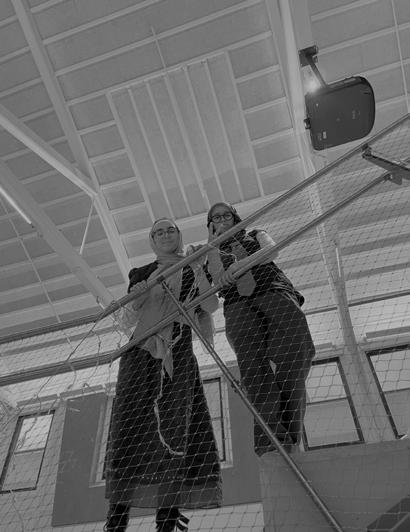
2 minute read
VIMTO DEFICIT
from Fig&Olive RA23 Issue
by Fig & Olive
Saudi born and raised Sadeen Owis shares her experiences of Ramadan. Vimto, a sweet berry drink, became a traditional part of her Ramadan, as with a lot of Saudis.
WRITTEN BY: SADDQA BAHIDRAH
Advertisement
Picture this: The temperature has reached 100 degrees Fahrenheit, and it’s only three hours until Maghrib. You’re sitting in front of the TV, watching cartoon shows on MBC 3, suddenly, a commercial comes on. It’s the sight of an ice-cold pitcher of Vimto being mixed and served in a glass. The crackling sounds of the ice as it hits the liquid, the crisp sound of the liquid being poured, and the condensation forming on the glass make it impossible to keep watching. In Saudi Arabia, this was an integral part of our childhood.
There’s nothing quite like the cruel and unusual punishment of watching someone enjoy an icecold glass of Vimto while you’re still fasting during Ramadan. For Sadeen Owis, this tormenting experience was one of the things she missed the most while being away from Saudi Arabia for college.
Sadeen, a rising junior at Pratt Institute majoring in Animation, provided valuable insights on the changes she noticed during Ramadan in both 2022 and 2023. Reflecting on Ramadan 2022, Sadeen described it as a short, concealed, and peaceful experience. However, the same year, she quickly grappled with impostor syndrome. The overwhelming lack of Muslim culture on campus made her feel like the only Muslim student. Consequently, she faced the challenge of expressing her religion and culture while trying to fit in with her American peers. Sadeen’s primary concern was making others uncomfortable. Wearing the hijab as a practicing Muslim, it felt as though her faith was boldly written on her forehead in red marker— a vulnerable position to be in, particularly in the city of New York. She often feared ridicule or instilling fear in others simply because of her appearance.
In 2023, a complete shift in Sadeen’s approach to living in America occurred. She embraced her true self unapologetically, observing Ramadan with a sense of keenness and personal growth, allowing her to find her own path. Sadeen described this Ramadan as both rehabilitating and significant, feeling like a “rebirth of iman” within herself. The opportunity to recharge and reconnect with her creator during Ramadan is what Sadeen cherishes the most. This Ramadan seemed to be the most significant and exciting one she’s had while away from home. However, she acknowledged the challenges she faced.

Growing up in a Muslim country, Sadeen was surrounded by an environment that facilitated observing Ramadan, such as participating in taraweeh prayers, staying up for suhoor, and breaking fast with family. Sadeen mentioned how her sleep schedule became disrupted during Ramadan since her classes were not adjusted for the late-night taraweeh and suhoor timings, as well as praying fajr. As a result, she occasionally found herself falling asleep in class, needing to be awakened by a professor. She humorously added that it epitomized the essence of an American Ramadan. Despite the balancing between academics, grades, and fasting, Sadeen discovered a deeper devotion to Islam and began to appreciate the true extent of sacrifice.






